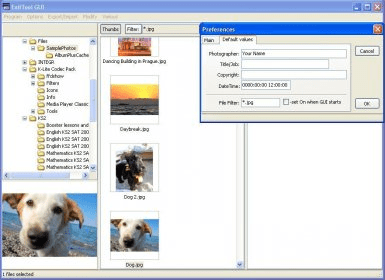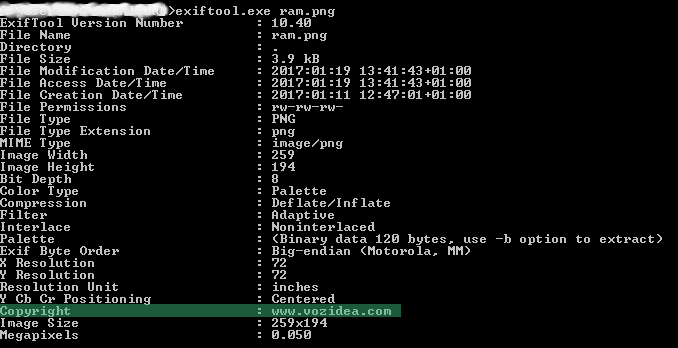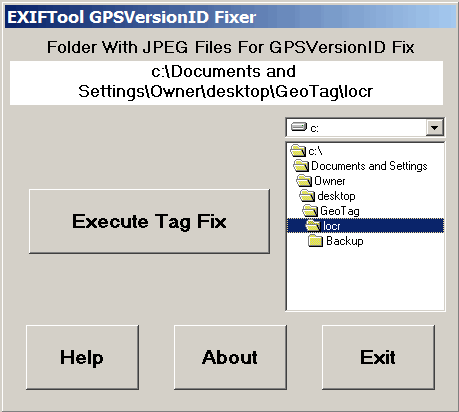
Exiftool utility pdf#
Remember that some fields may not be available for a particular filetype, for example JobID will not write to a PDF file. If you have files with metadata in them and want ResourceSpace to extract that information, you can use the metadata report and this output to construct the appropriate mappings Run the following command to see a report of all the existing metadata in an image, including the namespace. Any of those names could be used in the exiftool_field in RS to develop your ideal read/write mapping. Run the following command on the command line for a (long) list of writable fields. The following link provides useful documentation of the command-line capabilities It can also read data from other filetypes that are not write-supported. Exiftool fully supports read/writing of several filetypes including JPG, GIF, PNG, TIF, EPS, PDF. Please refer to the ExifTool documentation for further information on tag names. IPTC:Country-PrimaryLocationName,XMP:Country IPTC:Caption-Abstract,IPTC:ImageDescription,XMP:Description Your default installation will probably have these and more already set up. 'XMP:Keywords' or 'IPTC:ImageDescription' To specify a namespace for the tag simply prefix the tag name with the namespace in capitals and a colon e.g. XMP and IPTC both include a 'Keywords' tag).

This is useful when there are overlapping tag names with different values (e.g. You can specify the namespace that you want to extract the tag from. In order to map an IPTC/Exif/XMP tag name to a ResourceSpace field, you can enter the ExifTool-supported tag name(s) in the "Exiftool field" box in the metadata field settings for that field. You must have ExifTool (a command-line interface to a PERL library) installed and enabled (the path must be specified) in config.php or auto-detected during the setup routine. Many different profiles are supported in addition to Exif, including XMP, IPTC, GPS, JFIF, GeoTIFF, ICC Profile, Photoshop IRB, FlashPix, AFCP and ID3. This is extremely flexible and any metadata present in a file can be mapped to ResourceSpace fields. ResourceSpace makes use of the open source ExifTool utility to read and write metadata. Mapping metadata when using the ExifTool utility This synchronisation can be two way, so that imported metadata can be automatically extracted into a configured field, but also that metadata added to the resource after import is written back to the file at download.
Exiftool utility software#
This library is free software you can redistribute it and/or modify it under the same terms as Perl itself.ResourceSpace is able to map between embedded metadata stored in your original files and the metadata fields in ResourceSpace itself. AUTHORĬopyright 2003-2022, Phil Harvey (philharvey66 at ) Hierarchy is collapsed to a linear list when ApplyFixups() is called. Maintains a hierarchical list of fixups so that the whole hierarchy can be shifted by a simple shift at the base. Keeps track of pointers with different byte ordering, and relies on Image::ExifTool::GetByteOrder() to determine the current byte ordering when adding new pointers to a fixup. It is used by ExifTool to maintain the pointers in image file directories (IFD's).
Exiftool utility code#
This module contains the code to keep track of pointers in memory and to shift these pointers as required. $fixup->IsEmpty() # return true if no offsets to fix DESCRIPTION


$fixup->Dump() # dump debugging information # recursively apply fixups to the specified data $fixup-> += $shift2 # shift pointer values only

# add a new fixup to a pointer at the specified offset in data Image::ExifTool::Fixup - Utility to handle pointer fixups SYNOPSIS use Image::ExifTool::Fixup


 0 kommentar(er)
0 kommentar(er)
